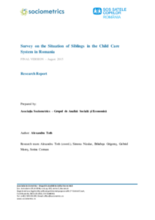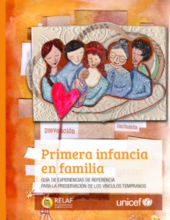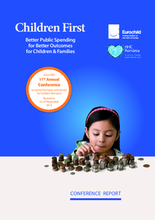Displaying 161 - 170 of 221
This report provides data and background on challenges of placing siblings together in foster families.
This study investigates the correlation over time between international adoption and institutional care.
This study examined psychopathology at age 12 years in a cohort of Romanian children who had been abandoned at birth and placed into institutional care, then assigned either to be placed in foster care or to care as usual.
A recent study from the Bucharest Early Intervention Project has revealed that children who were placed in institutional care have an increased risk of demonstrating behaviors associated with autism, such as impaired social communication, according to the article.
Esta Guía reúne una serie de programas, prácticas y políticas públicas que resultaron en la garantía del derecho a la convivencia familiar y comunitaria de niñas y niños en su primera infancia. En particular, se caracterizan por ser innovadoras o por haber obtenido buenos resultados en la protección y la restitución de este derecho. Las experiencias recopiladas abarcan programas, proyectos e iniciativas públicas, privadas o mixtas de fortalecimiento familiar, provisión de cuidados alternativos, y de reintegración familiar.
This article presents the findings of a 12-year study, conducted by Harvard University and Boston Children’s Hospital in the USA, that examined the effects of institutionalization on Romanian children’s brain development.
This study tested the capacity to perceive visual expressions of emotion, and to use those expressions as guides to social decisions, in three groups of 8- to 10-year-old Romanian children: children abandoned to institutions then randomly assigned to remain in ‘care as usual’ (institutional care); children abandoned to institutions then randomly assigned to a foster care intervention; and community children who had never been institutionalized.
This study examines the consequences of the affective and educative nature of Romanian parents’ migration related to their children.
This Guide, written in Spanish, features a compilation of several social protection programs, services and public policies that resulted in the prevention of family breakdown and in the support of families and communities in caring and protecting their children. All these examples are taken from the Latin American region, Italy and Romania.
This report summarizes the discussions and activities held at Eurochild’s 11th Annual Conference, co-hosted by Hope and Homes for Children in Bucharest, Romania on 26-28 November 2014.




